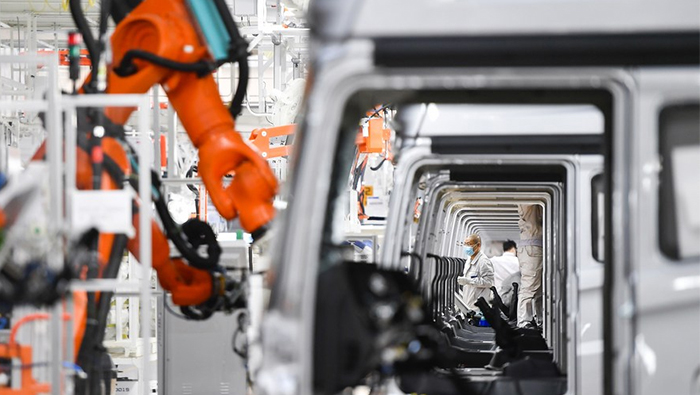
Beijing: Well begun is half done. Off to a good start in 2023, China's economy is seeing a faster-than-expected recovery, which is boosting confidence and nurturing new impetus both domestically and abroad.
The robust tourism and consumption boom during the Spring Festival, as well as other indicators, serve as evidence suggesting a promising year.
During the seven-day holiday, China saw nearly 2.9 million cross-border trips, up 120.5 per cent year on year, and 308 million domestic trips, up 23.1 per cent compared with 2022.
In January, the purchasing managers' index for China's manufacturing sector came in at 50.1, returning to expansion territory after three consecutive months of contraction.
With eased epidemic controls and the start of a new policy cycle, China's economy is expected to open new horizons in 2023, while pragmatic policies to stabilize growth and boost development will further shore up confidence, said Yu Xiangrong, China chief economist of Citigroup.
Encouraging figures are the result of coordinated central and local planning, which echoed a Chinese saying that a year's plan starts with spring.
Promoting consumption and expanding domestic demand is a priority task in China in 2023.
The Ministry of Commerce recently said that it will focus on areas such as automobiles and household supplies, and coordinate national promotional activities aimed at boosting consumption.
The ministry will also continue with the construction of international consumption centre cities, and maintain an emphasis on developing county-level businesses.
The National Development and Reform Commission, China's top economic planner, said multiple measures will be implemented to increase confidence in consumption.
The Ministry of Finance will coordinate policy tools to exert more efforts on attracting special bond investment and improving preferential policies concerning taxes and fees.
China's central bank will guide financial institutions to increase support for green development and will continue to apply monetary policy tools to ensure carbon emission reductions, clean and efficient use of coal, and efficient logistics.
Meanwhile, China's local governments recently held featured activities and adopted measures to rev up economic development and consolidate market confidence, said Dong Ximiao, chief researcher with Merchants Union Consumer Finance Company Limited.
This outstanding performance has won applause from international institutions and prompted their improved predictions for China's economic growth in 2023.
The International Monetary Fund has lifted its forecast for China's economic growth this year to 5.2 per cent from a previous prediction of 4.4 per cent. The forecasts of the UN and World Bank stood at 4.8 per cent and 4.3 per cent, respectively.
Investment banks, including Morgan Stanley and Goldman Sachs, have also made upward revisions to their growth forecasts for the world's second-largest economy.
In contrast, the UN World Economic Situation and Prospects 2023 report predicted global growth to decelerate from an estimated 3.0 per cent in 2022 to 1.9 per cent in 2023, marking one of the lowest growth rates in recent decades.
The global economy will see slow growth, high inflation and high risks in the next three to five years, and the monetary policies in major developed economies will bring uncertainty to the global economy, said Liang Guoyong, a senior economist for the UN Conference on Trade and Development.
Therefore, the positive development of China's economy will undoubtedly play an important role in stabilising the world economy, he added.
Zhang Ming, deputy director of the Institute of Finance under the Chinese Academy of Social Sciences, believes that as the effects of various policies continue to emerge, China's economy will pick up steam and again become an important "locomotive" driving global economic growth